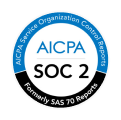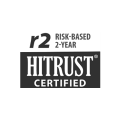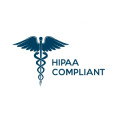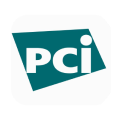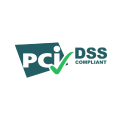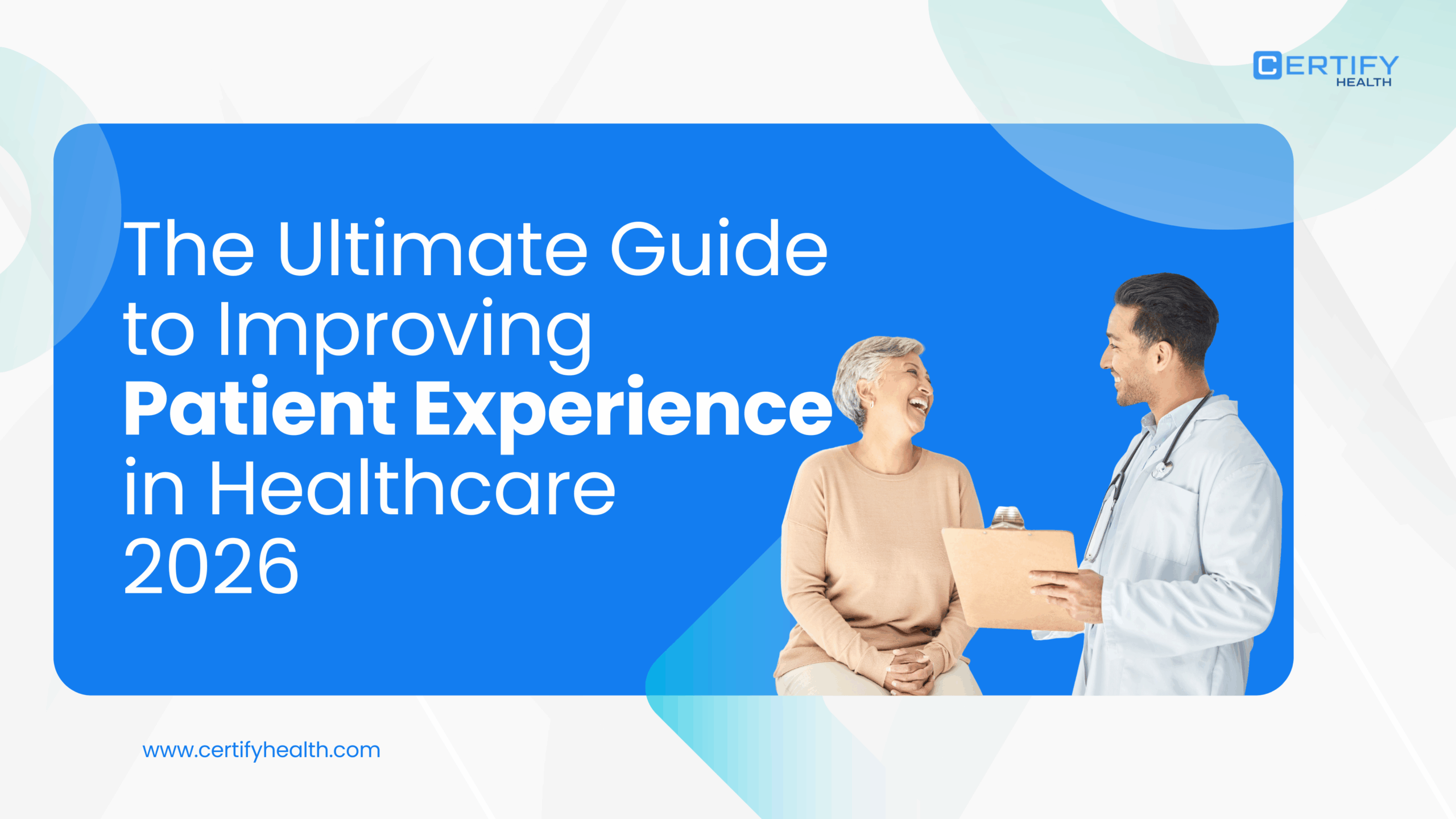
Patient expectations have changed. Hospitals haven’t kept up. That gap is now both the biggest
Patient expectations have changed. Hospitals haven’t kept up. That gap is now both the biggest
Stop watching your front desk turn into a battlefield every peak hour. And you’re
A patient schedules an appointment. They arrive at the clinic, repeat their medical history, wait
In healthcare, a single identity error can unravel everything. Imagine treating a patient under the
Patient-friendly billing is now a core driver of patient retention, revenue growth, and trust in
As per study, patients in public hospitals are 2.9× more likely to say their care
Missed appointments in OB-GYN care are more than scheduling problems. They are indicators of deeper
Integrated healthcare isn’t just a buzzword; it’s the foundation of truly connected patient-centered medicine.
Digital patient engagement is solving real-world challenges for both patients and ophthalmology clinics.
If you think patient engagement is only about sending reminders, then you are wrong. In
Ever wondered how much time and money your practice loses to paperwork and manual workflows?
Running a modern dental practice without smart software is like drilling without light, you’ll miss
The ACA Marketplace Open Enrollment (OE) isn’t just another administrative season; it’s a financial and
If you think patient engagement is only about sending reminders, then you are wrong. In
The temporary reopening of the federal government has eased some operational pressures for healthcare practices,
Today, ambulatory care experience matters more than ever; it drives patient loyalty, reputation, and sustainable
Your team sees a patient assuming their insurance is active, but after the visit, you
Why Effective Therapy Practice Management is Key to a Smooth Patient Journey
Accurate patient identification in healthcare is the foundation of safe, effective, and compliant patient care.
~57% of U.S. physicians identify interoperability gaps as the common barrier to coordinated care (Source:
Affordable care act definition: It is a comprehensive U.S. healthcare law enacted in 2010 to
Nearly 30% of America’s healthcare spending (over $1 trillion annually) goes toward administrative tasks —
Healthcare communication is more than just interaction. It’s a lifeline.
Are staff shortages keeping your team in survival mode instead of success mode? Struggling
The Problem: Inefficient dental practice management is being driven by missed appointments
Think patient complaints are just noise? Think again. They’re your secret roadmap to growth.
Patient management goes far beyond admin work; it’s the very backbone of quality healthcare. Done
Walk into almost any specialty clinic today, and you’ll see the same story playing out:
A strong dental practice isn’t built on clinical care alone; it’s built on healthy cash
The reality for most rural hospitals is stark: your emergency department (ED) performance makes or
The MGMA Leaders Conference 2025: Where "Next is Now" Isn’t Just a Theme, it’s a
Healthcare administrative cost is the silent budget, buster in every practice, relentlessly climbing and devouring
The MGMA Leadership Conference 2025 takes center stage in Orlando, Florida, from September 28 to
Many find MIPS reporting confusing and full of government jargon and you might too.
If you are a healthcare provider navigating Medicare, you might already be aware of MIPS,
GAITHERSBURG, Md., Aug. 5, 2025 /PRNewswire/ -- CERTIFY Health, a patient-focused practice management platform, and DentalBee, an AI
Picture this: your patients are walking into your dental practice focused on care – not
In healthcare tech, true recognition comes from impact, not size. That’s why earning a spot
Ambulatory clinics are rapidly becoming the front door of healthcare, meeting rising demand for affordable,
At a time when healthcare leaders are being asked to do more with less—improve access,
Healthcare feels like it’s spinning faster by the minute—new regulations, evolving technology, rising patient expectations.
You know the drill—late phone calls, endless administrative tasks, double-booked chairs, and too much paper.
It’s 9:15 AM. Your front desk is already a scene: patients crowded in, forms everywhere,
The behavioral health market is growing fast—expected to reach $330.35B globally by 2034, with the
Whether you're leading a multi-location group or scaling a high-growth DSO, this year’s conference is
Healthcare teams thrive on rapid, reliable conversation. When every second counts, HIPAA Compliant Communication Platform
Wait—have you ever imagined your practice making front-page news for all the wrong reasons? A
Stop me if you've heard this one before: A 500-bed hospital processes 5,000 claims monthly,
Stop right there. Before you power through another chaotic day of no-shows, billing nightmares, and
Still using paper for patient intake? That like faxing a fax in the FaceTime era.
Revenue cycle management (RCM) is the pulse of a financially healthy practice. From scheduling and
It’s a hectic morning at the front desk. Mrs. Chen hands over her credit card,
Picture this: You explain the complete treatment plan… and the patient never returns. If you’re
Choosing the right practice management software shouldn’t feel like decoding a foreign language. Yet here
Picture this: It’s Monday morning, and your front desk staff is stuck juggling between multiple
Struggling to keep your practice financially healthy—even with a full schedule? You’re not imagining it.
One mistake. One overlooked message. That’s all it takes for a HIPAA violation to
Let’s face it—patient insurance verification used to be a nightmare. 15 minutes per patient and/or
Picture this: It’s Monday morning, your schedule is packed, and suddenly, you’re staring at three
Wait—are you losing patients before they even see the doctor? Although it sounds dramatic, this
The collaboration will help Brookline Dental Specialists modernize front desk operations and deliver a check-in
In healthcare, the first interaction—the appointment—can make or break the entire patient’s experience and revenue
Revenue collection in healthcare is kind of a mess, agreed? Many practices are still stuck
A patient shows up for their long-awaited Invisalign consult—but no one remembers them, the forms
Think about this: Patient giving out details for appointment booking, and the front desk staff
New Investment Accelerates CERTIFY Health's Mission to Revolutionize Patient Engagement and Streamline Healthcare Operations
Seasoned payments leader to drive innovation, compliance, and patient-centric strategies in healthcare finance.
Let’s not sugarcoat it—healthcare data security in 2025 is no joke. And when the stakes
Medical insurance verification is no longer just a box to tick—it’s a make-or-break moment in
Let's take a moment to think about this - U.S. patient engagement software market is
Still sending appointment reminders like it’s 2012? Yeah... patients notice. And they are not impressed.
Insurance eligibility verification might sound like a mundane admin task, but in reality, it’s the
Tired of dealing with patient no shows? You are definitely not alone. In the dental
Imagine a patient walking into your practice where his medical history, insurance details, and symptoms
Did you know that the goldfish has an attention span of only 9 seconds? But
You might have experienced it multiple times – your patients waiting in a packed room,
Imagine this - You have just sent an email containing a patient's test results and
Managing a healthcare practice involves balancing a lot of responsibilities, managing paperwork, and making sure
GAITHERSBURG, MD / ACCESS Newswire / March 26, 2025 / CERTIFY Health, a leading provider
Let’s talk about something that’s becoming a growing concern for healthcare practices —revenue cycle management.
Today we are going to talk about something that’s probably driving you crazy- those endless
The difference between financial stability and revenue loss for healthcare organizations often hinges on a
Understanding the future of healthcare: By 2025, the landscape of medical practice will be changing
Ineffective revenue cycle management (RCM) costs medical practices thousands each month. With claim denials averaging
Inpatient admission is the critical transition from ER or clinic to hospital care—it is where
Ever had one of those crazy days at your practice when nothing seems to go
Missed appointments cost the U.S. healthcare system $150 billion annually, with a physician losing over
Claim denials are a major headache for healthcare providers, leading to annual $25 million in
It’s 6 PM—your front desk staff slump, drained by endless calls and tattered appointment books.
By 2025, clipboards and paper forms are history—Medical check-in is the new norm. Healthcare providers
Every no-show or missed appointment does not simply mean an empty slot but also lost
Patient intake is the key point of initial contact in healthcare, setting the tone for
Miscommunication during patient handoffs causes 80% of serious medical errors and contributes to millions of
Patient intake is a routine yet crucial process in healthcare. It requires patients to provide
Have you ever wondered if your patients truly understand everything you tell them about their
People these days prioritize ease and efficiency in all aspects of their lives, and healthcare
A patient walks into a healthcare center and has to wait in a long queue.
Efficient patient flow management is crucial for any healthcare practice. It ensures that patients move
It’s tough to believe, but patient loyalty in healthcare is not what it used to
Healthcare practices can no longer stick to the old-school methods of providing patient care, these
Running an independent physician practice takes more than just delivering excellent care to your patients.
Today’s healthcare providers try their best to offer top-notch care while keeping their overworked staff
Let’s face it: Patient acquisition is essential for any healthcare practice to thrive. However, attracting
A study revealed that only 22% of clinicians have sufficient time for patient documentation, while
The No Surprises Act, enacted in December 2020 and effective since January 2022, is all
Transitioning to a digital patient intake system isn’t just about reducing paperwork—it's about creating a
Learn effective strategies to increase point-of-service collections, speed up payments, and reduce bad debt. Discover
Are staffing costs draining your budget? You’re not alone. Discover how CERTIFY Health’s cutting-edge solutions—like
Bills are piling up, and collections are dragging their feet. The amounts you manage to
Modern patient intake platforms and digital check-ins aren’t just tools for efficiency—they’re your practice’s competitive
In today’s fast-paced healthcare environment, ensuring seamless revenue collections starts with an essential step: insurance
In 2025, patients expect more than just medical care—they want seamless, efficient, and personalized experiences
This article, you will explore the common challenges dental practices encounter during the check-in process
This article will explore data-driven strategies that can streamline your healthcare practices by automating crucial
This article serves as a practical guide for healthcare providers, offering actionable tips to ensure
This article serves as an informational guide to help healthcare providers optimize their patient pre-registration
Patient Intake Software. In fact, a recent Patient Access Survey revealed that 90% of the
Explore the risks of neglecting healthcare compliance and discover how CERTIFY Health helps safeguard your
In some of the toughest situations, patients long for empathy and guidance from their providers.
Patient scheduling is one of the most time-consuming tasks for your front-desk staff. When you
Finances often present a significant barrier for patients in the healthcare industry. Despite careful budgeting,
Patient collections refer to the process of obtaining payments from patients for services rendered. Also
Healthcare payments are often complex, particularly with insurance reimbursements, paper invoices, and multiple statements with
Managing patient payments in your practice is more challenging than you think with the manual
Digital intake helps your practices streamline the overall process from patient registration to payment processing
Is your practice still manually verifying patients' insurance? This process can be incredibly time-consuming and
Patient intake is a crucial aspect of healthcare delivery, and ensuring seamless processes is essential
Patient-provider communication is the cornerstone of your healthcare practice’s success. Lack of good communication significantly
Discover how self-check-in kiosks are transforming patient care, revolutionizing the way we access medical services.
GAITHERSBURG, Md., April 10, 2024 /PRNewswire/ — Facecheck garnered huge interest at HIMSS this year, with attendees
GAITHERSBURG, Md., April 4, 2024 /PRNewswire/ — The HIMSS conference, the largest healthcare technology conference in the
Discover how biometrics in healthcare empowers practices to streamline workflow and improve the patient experience.
Managing the revenue cycle in today’s healthcare landscape is more challenging than ever before. It
GAITHERSBURG, Md., March 8, 2024 /PRNewswire/ — CERTIFY Health, a leading provider of cutting-edge healthcare
GAITHERSBURG, Md., March 5, 2024 /PRNewswire/ — CERTIFY Health is thrilled to introduce Kevon Kothari
Introduction One study found that self-scheduled medical appointments had a lower no-show rate than those
Healthcare practices are actively seeking ways to streamline the patient intake process through digital tools,
CERTIFY Health is dedicated to transforming the patient-provider interaction, aiming to alleviate stress, streamline procedures,
CERTIFY Health is on a mission to revolutionize the way patients engage with their healthcare
CERTIFY Health’s Jeremy Hummer talks about the need for urgency and innovation as soon as
GAITHERSBURG, MD – SEPTEMBER 22nd 2021 CERTIFY Global has been awarded a group purchasing agreement for
GAITHERSBURG, Md. – October 18th, 2021 CERTIFY Health, a leading provider of patient engagement and
For most organizations distributing COVID-19 vaccines, vaccine availability is only half the problem; the rest

CERTIFY Health is a leading healthcare technology company specializing in patient engagement, intake, identity management, and revenue optimization.
© All Rights Reserved 2025.
